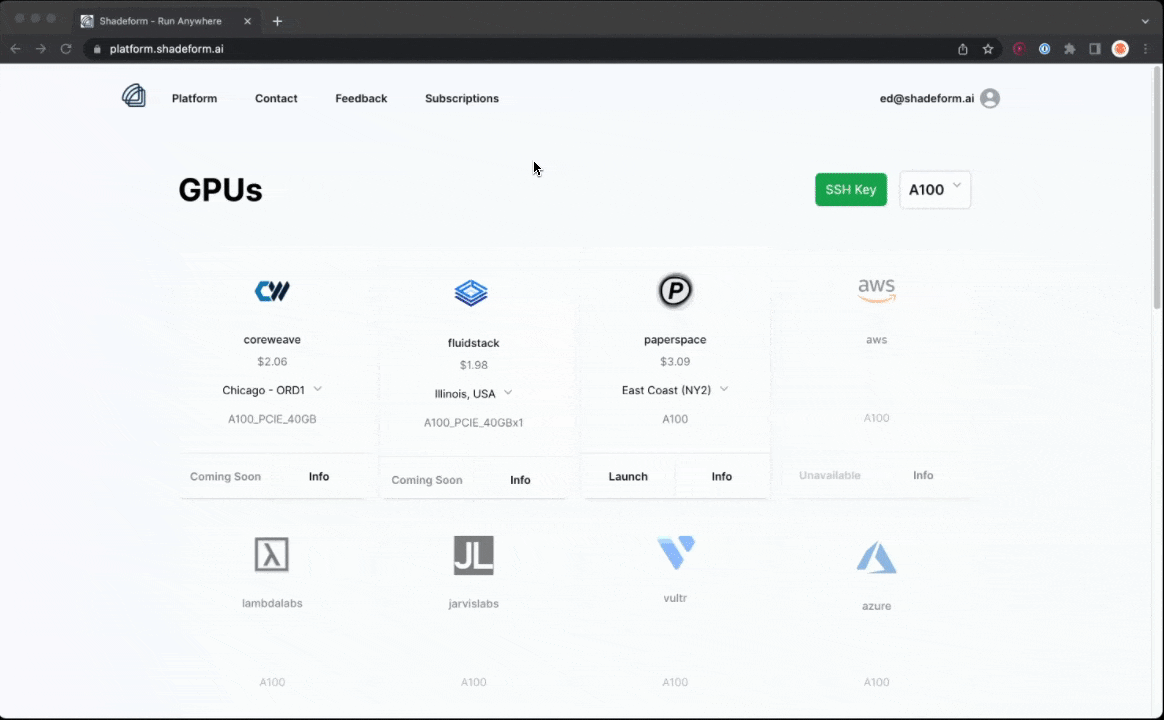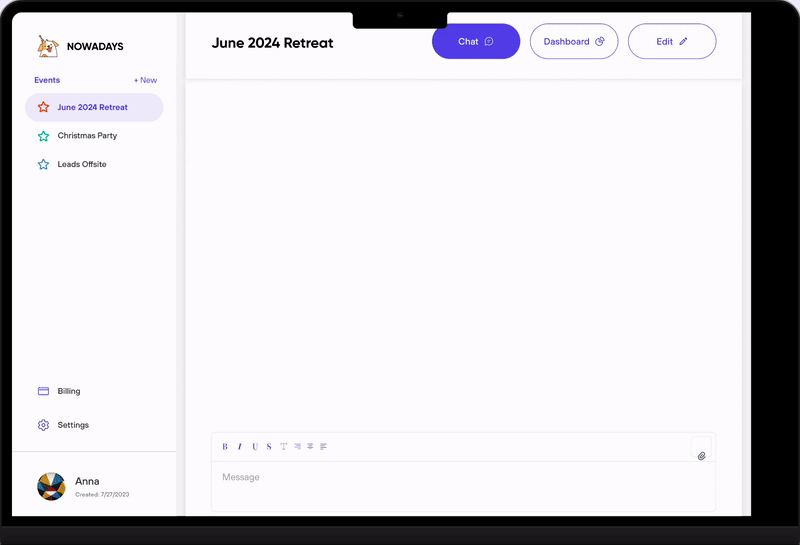5 neat AI startups from Y Combinator’s Summer 2023 batch
It’s that time of year again: the week when startups in Y Combinator’s latest batch present their products for media — and investor — scrutiny. Over the next two days, roughly 217 companies will present in total, a tad smaller than last winter’s 235-firm cohort as VC enthusiasm suffered a slight slump.
In the first half of 2023, VCs backed close to 4,300 deals totaling $64.6 billion. That might sound like a lot. But the deal value represented a 49% decline from H1 2022 while the deal volume was a 35% dip year-over-year.
In a bright note, one segment — driven by equal parts hype and demand — is wildly outperforming the others: AI.
Nearly a fifth of total global venture funding from August to July came from the AI sector, according to CrunchBase. And the voraciousness is manifesting in this summer’s Y Combinator cohort, which features over double (57 versus 28) the number of AI companies compared to the winter 2022 batch.
To get a sense of which AI technologies are driving investments these days, I dove deep into the summer 2023 batch, rounding up the YC-backed AI startups that appeared to me to be the most differentiated — or hold the most promise.
AI infrastructure startups
Several startups in the Y Combinator cohort focus not on what AI can accomplish, but on the tools and infrastructure necessary to build AI from the ground up.
There’s Shadeform, for example, which provides a platform to enable customers to access and deploy AI training and inferencing workloads to any cloud provider. Founded by data engineers and distributed systems architects Ed Goode, Ronald Ding and Zachary Warren, Shadeform aims to ensure AI jobs run on time and at “optimal cost.”
As Goode notes in a blog post on the Y Combinator website, the explosion in demand for hardware to develop AI models, particularly GPUs, has resulted in a shortage of capacity. (Microsoft recently warned of service disruptions if it can’t get enough AI chips for its data centers.) Smaller providers are coming online, but they don’t always deliver the most predictable resources — making it difficult to scale across them.
Shadeform solves for this problem by letting customers launch AI jobs anywhere, across public cloud infrastructure. Leveraging the platform, companies can manage GPU instances on every provider from a single pane of glass, configuring “auto-reservations” when the machines they need are available or deploying into server clusters with a single click.

Image Credits: Shadeform
Another intriguing Y Combinator startup tackling challenges in AI operations is Cerelyze, founded by ex-Peloton AI engineer Sarang Zambare. Cerelyze is Zambare’s second YC go-around after leading the AI team at cashier-less retail startup Caper.
Cerelyze takes AI research papers — the kind typically found on open access archives like Arxiv.org — and translates the math contained within into functioning code. Why is that useful? Well, lots of papers describe AI techniques using formulas but don’t provide links to the code that was used to put them into practice. Developers are normally left having to reverse engineer the methods described in papers to build working models and apps from them.
Cerelyze seeks to automate implementation through a combination of AI models that understand language and code and PDF parsers “optimized for scientific content.” From a browser-based interface, users can upload a research paper, ask Cerelyze natural language questions about specific parts of the paper, generate or modify code and run the resulting code in the browser.
Now, Cerelyze can’t translate everything in a paper to code — at least not in its current state. Zambare acknowledges that the platform’s code translation only works for a “small subset of papers” right now and that Cerelyze can only extract and analyze equations and tables from papers, not figures. But I still think it’s a fascinating concept, and I’m hoping it’ll grow and improve with time — and the right investments.
AI dev tools
Still developer-focused but not an AI infrastructure startup per se, Sweep autonomously handles small dev tasks like high-level debugging and feature requests. The startup was launched this year by William Zeng and Kevin Lu, both veterans of the video-game-turned-social-network Roblox.
“As software engineers, we found ourselves switching from exciting technical challenges into mundane tasks like writing tests, documentation and refactors,” Zeng wrote on Y Combinator’s blog. “This was frustrating because we knew large language models [similar to OpenAI’s GPT-4] could handle this for us.”
Sweep can take a code error or GitHub issue and plan how to solve it, Zeng and Lu say — writing and pushing the code to GitHub via pull requests. It can also address comments made on the pull request either from code maintainers or owners — a bit like GitHub Copilot but more autonomous.
“Sweep started when we realized some software engineering tasks were so simple we could automate the entire change,” Zeng said. “Sweep does this by writing the entire project request with code.”
Given AI’s tendency to make mistakes, I’m a little skeptical of Sweep’s reliability over the long run. Fortunately, so are Zeng and Lu — Sweep doesn’t automatically implement code fixes by default, requiring a human review and edit them before they’re pushed to the master codebase.
AI apps
Transitioning away from the tooling subset of AI Y Combinator startups this year, we have Nowadays, which bills itself as the “AI co-pilot for corporate event planning.”
Anna Sun and Amy Yan co-founded the company in early 2023. Sun was previously at Datadog, DoorDash and Amazon while Yan held various roles at Google, Meta and McKinsey.
Not many of us have had to plan a corporate event — certainly not this reporter. But Sun and Yan describe the ordeal as arduous, needlessly tiring and expensive.
“Corporate event planners are bombarded with endless calls and emails while planning events,” Sun writes in a Y Combinator blog post. “Stressing over tight schedules, planners are paying for full-time assistants or tools that cost them over $100,000 a year.”
So, Sun and Yan thought, why not offload the most painful parts of the process to AI?
Enter Nowadays, which — provided the details of an upcoming event (e.g. dates and the number of attendees) — can automatically reach out to venues and vendors and manage relevant emails and phone calls. Nowadays can even account for personal preferences around events, like amenities near a given venue and activities within walking distance.
I should note that it isn’t entirely clear how Nowadays works behind the scenes. Is AI actually answering and placing phone calls and returning emails? Or are humans involved somewhere along the way — say for quality assurance? Your guess is as good as mine.
Nevertheless, Nowadays is a very cool idea with a potentially huge addressable market ($510.9 billion by 2030, according to Allied Market Research), and I’m curious to see where it goes next.

Image Credits: Nowadays
Another startup trying to abstract away traditionally manual processes is FleetWorks, the brainchild of ex-Uber Freight product manager Paul Singer and Quang Tran, who formerly worked on moonshot projects at Airbnb.
FleetWorks targets freight brokers — the essential middlemen between freight shippers and carriers. Designed to sit alongside a broker’s phone, email and transportation management system (TMS), FleetWorks can automatically book and track loads and schedule appointments with shipping facilities that lack a booking portal.
Typically, brokers have to reach out via phone or email to drivers and dispatchers for loads that aren’t being tracked automatically for updates on shipment statuses. Simultaneously, they have to juggle calls from trucking companies interested in booking loads and negotiate on the price, as well as set appointment times for unscheduled loads.
Singer and Tran claim that FleetWorks can lighten the load (no pun intended) by triggering calls and emails and pushing all the relevant information to the TMS or email. In addition to sharing load details, the platform can discuss price and book a carrier, even calling a driver and updating account teams on issues that crop up.
“FleetWorks helps freight operators focus on high-value work by automating routine calls and emails,” Singer wrote in a Y Combinator post. “Our AI-powered platform can leverage email or use a human-like voice to make tracking calls, cover loads, and reschedule appointments.”
If it works as advertised, that sounds genuinely useful.


